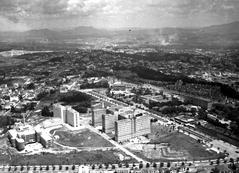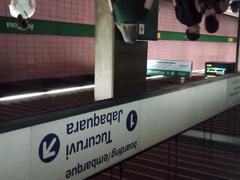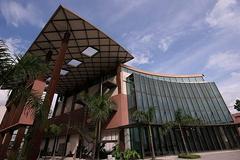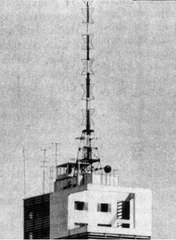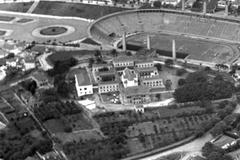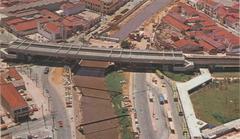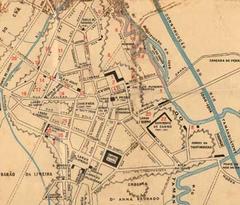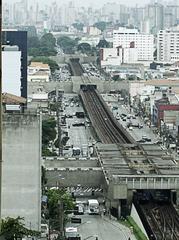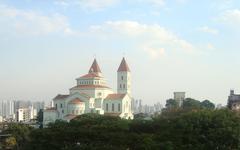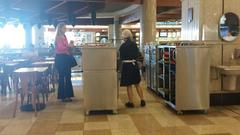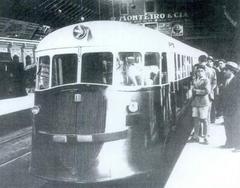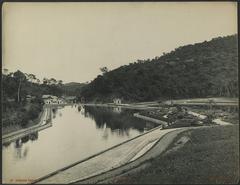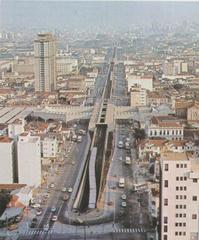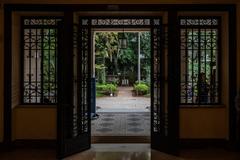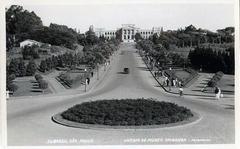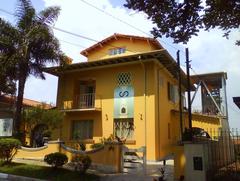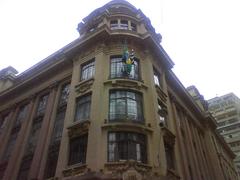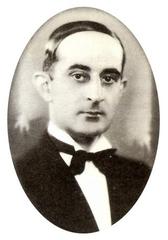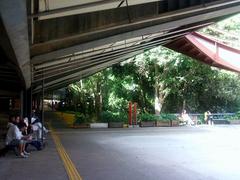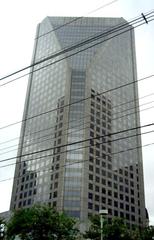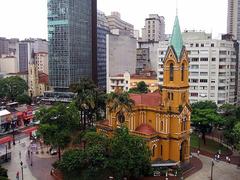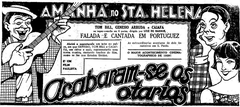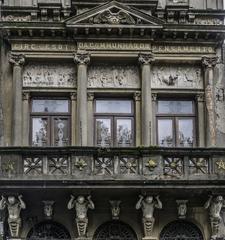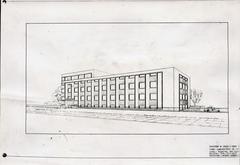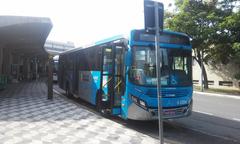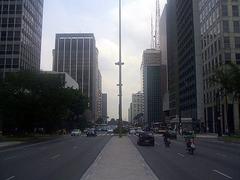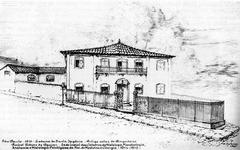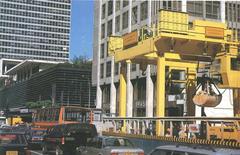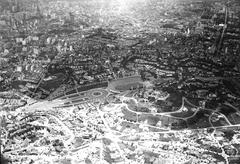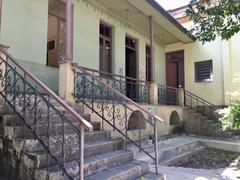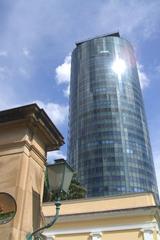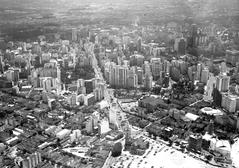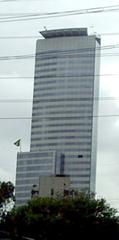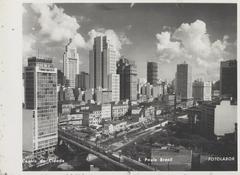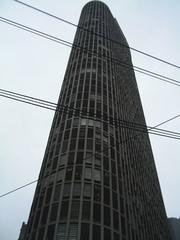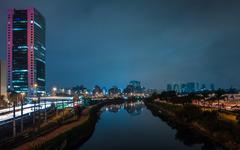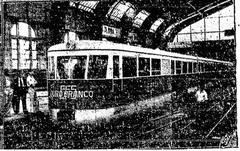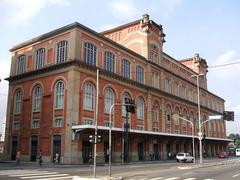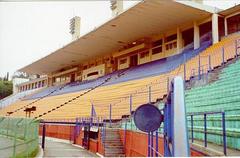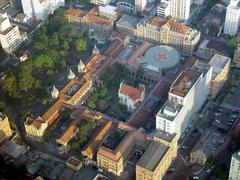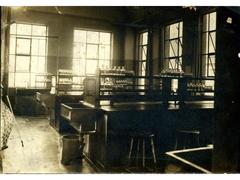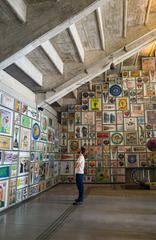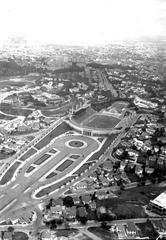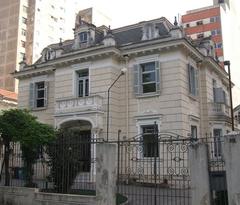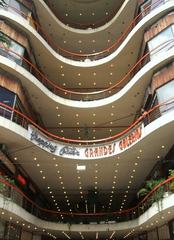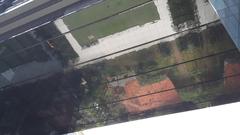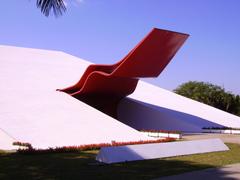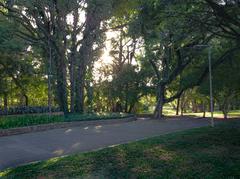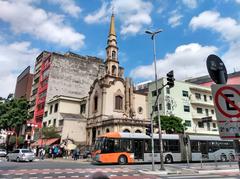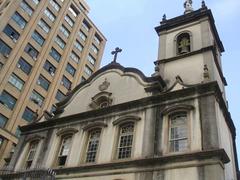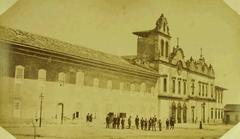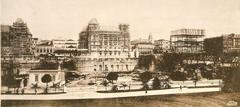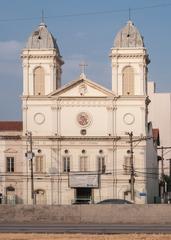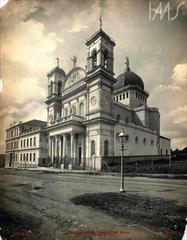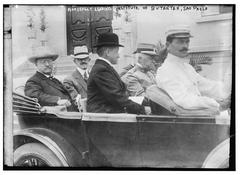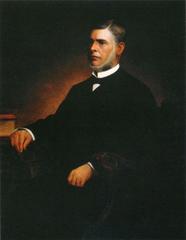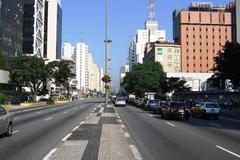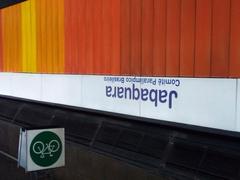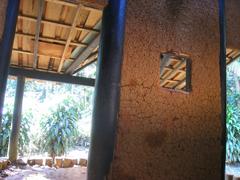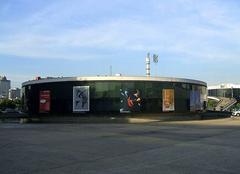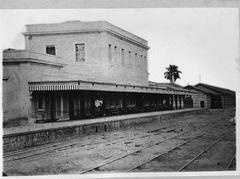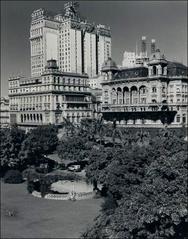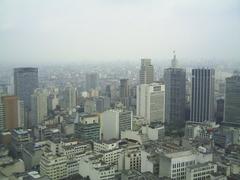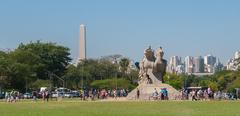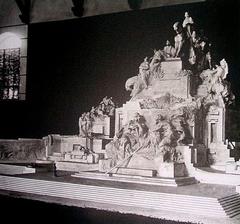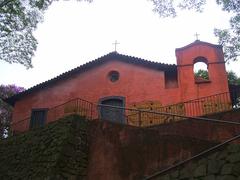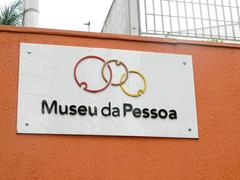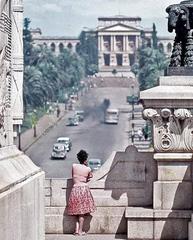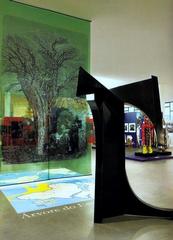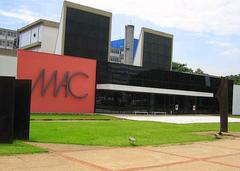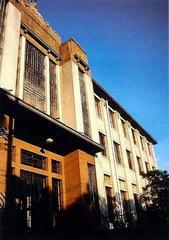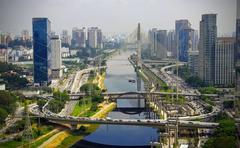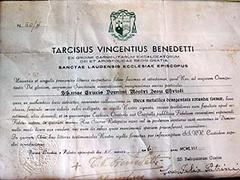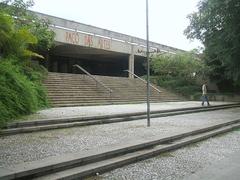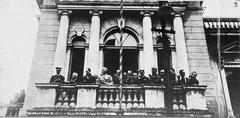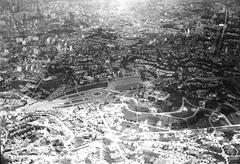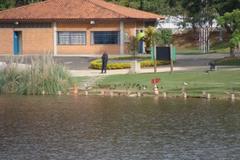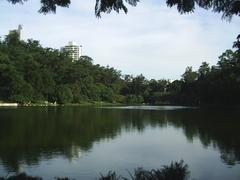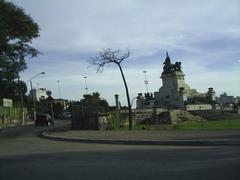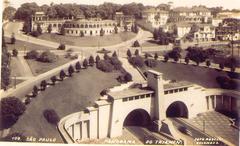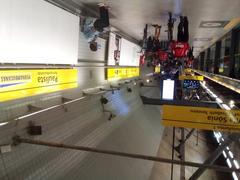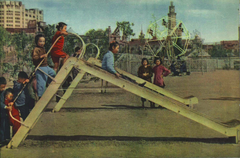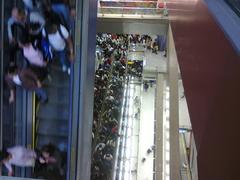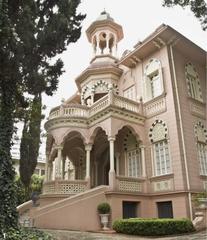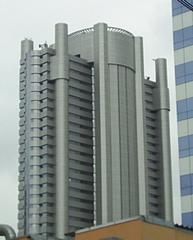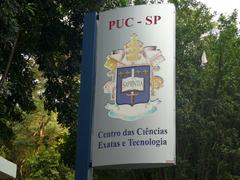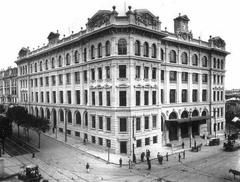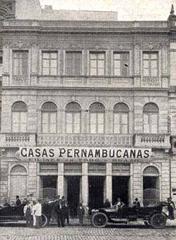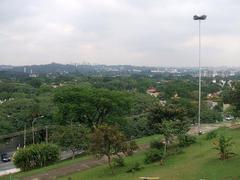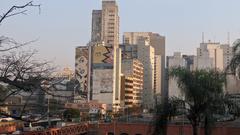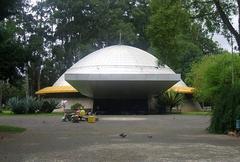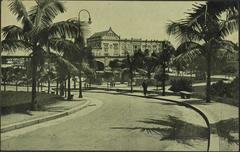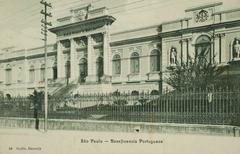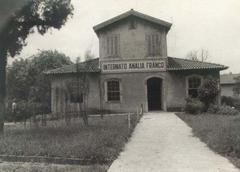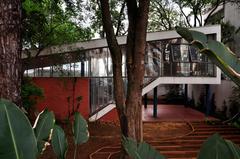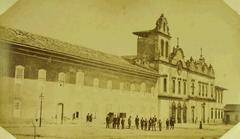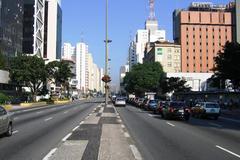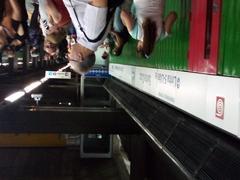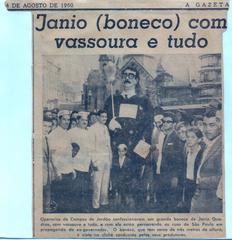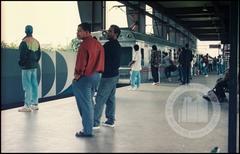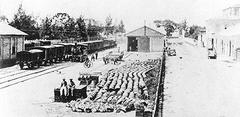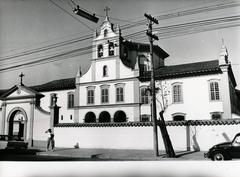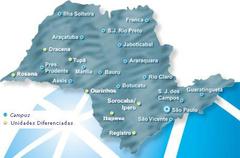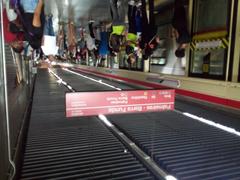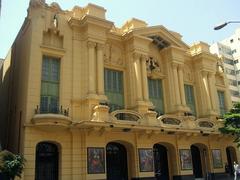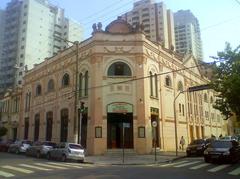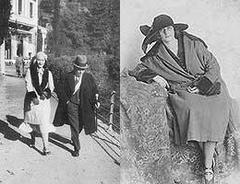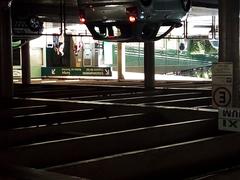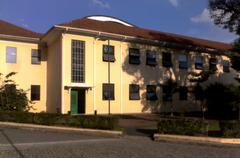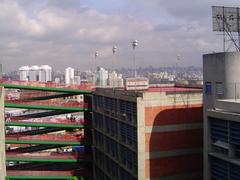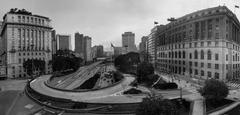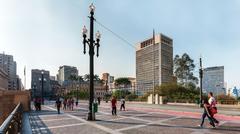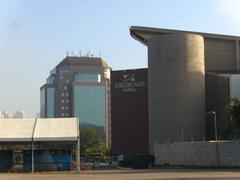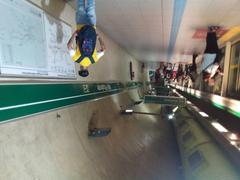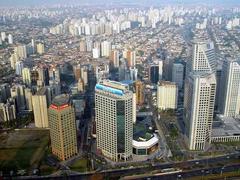
Sesc Pompéia: Visiting Hours, Tickets, and Complete Guide to São Paulo’s Historic Cultural Landmark
Date: 04/07/2025
Introduction
Sesc Pompéia is an iconic cultural and social center in São Paulo, renowned for its innovative adaptive reuse of industrial architecture and its role as a hub for inclusive, accessible arts and community life. Housed in a former 1920s steel drum factory, Sesc Pompéia stands as a symbol of São Paulo’s industrial heritage, brilliantly reimagined by architect Lina Bo Bardi. Today, it offers a dynamic space for music, theater, visual arts, sports, learning, and social interaction—welcoming visitors of all ages and backgrounds.
This detailed guide covers Sesc Pompéia’s history, architectural significance, cultural programming, visitor information, accessibility, and tips for making the most of your visit.
Table of Contents
- History and Architectural Significance
- Lina Bo Bardi’s Vision and Legacy
- Cultural Programming and Community Offerings
- Visitor Information
- Special Events and Festivals
- Practical Tips and FAQs
- Nearby Attractions
- Visual Highlights
- Contact and Links
- Conclusion and Final Tips
History and Architectural Significance
Sesc Pompéia’s origins date back to São Paulo’s industrial boom of the early 20th century. The site’s original function as a steel drum factory reflected the city’s working-class identity and industrial prowess. By the 1970s, as manufacturing declined, the factory lay abandoned but was organically embraced by the local community for informal gatherings and activities (C20 Society).
In 1977, Sesc—Brazil’s Social Service for Commerce—acquired the property, envisioning a new center for recreation and culture. Rather than demolishing the existing structures, Sesc entrusted Lina Bo Bardi to transform the complex. Her adaptive reuse preserved the robust concrete and brickwork, restoring industrial details such as the saw-tooth roof and introducing bold new elements like concrete towers and aerial walkways. The result is a harmonious blend of preservation and innovation, recognized as a landmark example of Latin American adaptive reuse (hicarquitectura.com).
Bo Bardi’s philosophy—leaving visible marks of age and labor—honors the site’s history while fostering a sense of communal ownership and participation. The “São Paulo beach,” an open public deck, and the vibrant interiors invite spontaneous, inclusive use (lestrangeperspective.wordpress.com).
Lina Bo Bardi’s Vision and Legacy
Lina Bo Bardi’s work at Sesc Pompéia was deeply influenced by her commitment to social inclusion and her leftist political background. She viewed architecture as a “revolutionary act of love,” designing spaces that enable community, creativity, and dignity for all. Her approach to Sesc Pompéia was both radical and pragmatic: instead of erasing the past, she celebrated it—making the site’s industrial scars and textures part of its renewed identity (C20 Society, academia.edu).
The interconnected concrete towers, each with sports and leisure facilities, the mezzanine library, and the expansive communal dining area (“Comedoria”) exemplify her vision of an “architecture of the commons.” The design encourages fluid movement, chance encounters, and the mixing of different social groups, making culture accessible and engaging.
Cultural Programming and Community Offerings
Sesc Pompéia offers a diverse, year-round cultural program that reflects São Paulo’s creativity and diversity. The center’s mission is to democratize access to the arts and foster social inclusion. Regular offerings include:
- Music: Live concerts across genres—MPB, samba, rock, experimental—often featuring major artists during festivals like Virada Cultural. Tickets are low-cost or free, supporting broad access.
- Theater and Dance: Experimental and classic plays, dance performances, and participatory shows. Many include accessibility features such as Libras (Brazilian Sign Language) and audiodescription.
- Visual Arts: Contemporary art exhibitions in striking industrial settings, addressing social, political, and community themes.
- Workshops and Learning: Creative courses, hands-on workshops, literary events, and lectures for all ages.
- Family and Children’s Programming: Dedicated spaces, interactive theater, music, and dance shows tailored for young audiences, with inclusive accessibility measures.
- Community Initiatives: Events celebrating Afro-Brazilian culture, capoeira, and social resistance, as well as participatory parades and samba circles.
The Comedoria serves as both a dining hall and an informal stage, hosting musical sessions and offering affordable meals in a convivial setting (SescSP).
Visitor Information
Visiting Hours
- Tuesday to Saturday: 10:00 – 20:00
- Sundays and holidays: 10:00 – 18:00
- Closed Mondays
- During special festivals and events (e.g., Virada Cultural), hours may extend into the night (SescSP).
Tickets and Admission
- General Admission: Free for exhibitions, library, and open spaces.
- Ticketed Events: Concerts, theater, and workshops may require tickets (usually free to R$50). Sesc credential holders receive discounts.
- How to Buy: Tickets available at the box office and online via the Sesc SP website; some events allow reservation via the Credencial Sesc SP app. All attendees, including children, need tickets for performances.
- Ticket Limits: Typically two tickets per person per session.
Getting There and Accessibility
- Address: Rua Clélia, 93, Pompéia, São Paulo (WhichMuseum).
- By Public Transit: Closest major station is Palmeiras-Barra Funda (metro and train hub). A new Sesc Pompeia metro station is under construction and expected in 2025.
- By Car: No on-site parking. Discounted parking available at Via Mais (Rua Carlos Vicari, 155); validate ticket at Sesc’s box office.
- Cycling: On-site bike rack (bring your own lock).
- Accessibility: Ramps, elevators, adapted restrooms; some outdoor surfaces are cobblestone or wood decking, which may be challenging for wheelchairs and strollers.
Facilities and Amenities
- Theater: Two auditoriums (total 774 seats); children under 12 not allowed in upper galleries.
- Comedoria/Choperia: Main concert and dining venue (capacity 800).
- Library: Open for reading and research.
- Exhibition Rooms: Rotating cultural and art exhibitions.
- Workshops and Studios: Creative courses and community activities.
- Outdoor Decks: Popular for relaxation; known locally as the “São Paulo beach.”
- Sports Complex: Gymnasiums and swimming pool (access for Sesc credential holders only).
- Cafeteria and Bar: Affordable meals and drinks.
Family and Children’s Areas
- Espaço de Brincar: Play area for children up to 6, open Tuesday to Sunday, 10:00–17:00 (closed for cleaning 13:00–14:00).
Special Events and Festivals
Virada Cultural
The annual Virada Cultural is a highlight, with 24 hours of music, theater, dance, and participatory performances. Recent editions featured artists like Tribo de Jah, Pato Fu, and community parades such as the “Auto do Bumba-Meu-Boi.” Sesc Pompéia often extends its hours and opens multiple venues for these events (SESC SP Virada Cultural 2025).
Thematic Festivals
Throughout the year, Sesc Pompéia hosts festivals on literature, film, visual arts, and social themes, transforming the center into a vibrant creative stage.
Practical Tips and FAQs
Q: What are Sesc Pompéia’s opening hours?
A: Tuesday–Saturday, 10:00–20:00; Sundays/holidays, 10:00–18:00; closed Mondays.
Q: How do I get tickets for events?
A: Online via the Sesc SP website, the Credencial Sesc SP app, or at the box office.
Q: Is the site accessible for people with disabilities?
A: Yes, but some outdoor surfaces may be uneven; accessibility services are available.
Q: Is parking available?
A: No on-site parking; discounted parking at Via Mais (validate at the box office).
Q: Can I take photos?
A: Photography is allowed in most areas; check for restrictions at exhibitions.
Q: Are pets allowed?
A: Only guide dogs.
Q: Is Sesc Pompéia suitable for families?
A: Yes, there are dedicated play areas, workshops, and family-friendly programming.
Q: Are guided tours available?
A: Not regularly, but check the website for occasional tours during special events.
Nearby Attractions
- Allianz Parque Stadium: Major sports and concert venue.
- Museu da Língua Portuguesa: Celebrating the Portuguese language.
- Pinacoteca do Estado: Leading art museum.
- São Paulo Museum of Art (MASP): Landmark modernist museum.
- Vila Madalena: Known for street art and vibrant nightlife.
Visual Highlights
- Use alt text such as “Sesc Pompéia visiting hours” and “São Paulo historical sites” for SEO and accessibility.
Contact and Links
- Phone: (11) 3871-7700
- Email: [email protected]
- Library: [email protected]
- Official Website: Sesc Pompéia
- Visitor Information: Services & Accessibility
- Event Calendar: SESC Pompéia Event Calendar
- Related Guides: Like a Local Guide: SESC Pompéia, WikiArquitectura: SESC Pompéia Factory
Conclusion and Final Tips
Sesc Pompéia remains a model of how architecture and social purpose can be harmoniously united. Lina Bo Bardi’s visionary adaptive reuse has created a space where São Paulo’s industrial past meets contemporary culture, inclusivity, and community. With its accessible programming, affordable or free admission, and welcoming atmosphere, Sesc Pompéia is essential for anyone exploring São Paulo’s cultural scene.
Tips for Visitors:
- Check the official website or Audiala app for up-to-date event listings, ticketing, and accessibility details.
- Visit during major festivals for a vibrant atmosphere, or on weekdays for a quieter experience.
- Take time to relax on the outdoor decks and explore nearby cultural sites.
Call to Action:
Download the Audiala app for real-time updates on Sesc Pompéia’s visiting hours, events, and guided tours. Explore our other guides on São Paulo’s top destinations and follow us on social media for more cultural tips.
References
- C20 Society
- hicarquitectura.com
- SescSP
- WhichMuseum
- EDHEC
- SESC Official Site
- BrazilianConcrete Blog
- Travel2Concert
- SESC SP Virada Cultural 2025
- SESC SP Agenda Cultural 2025
- Like a Local Guide: SESC Pompéia
- WikiArquitectura: SESC Pompéia Factory


